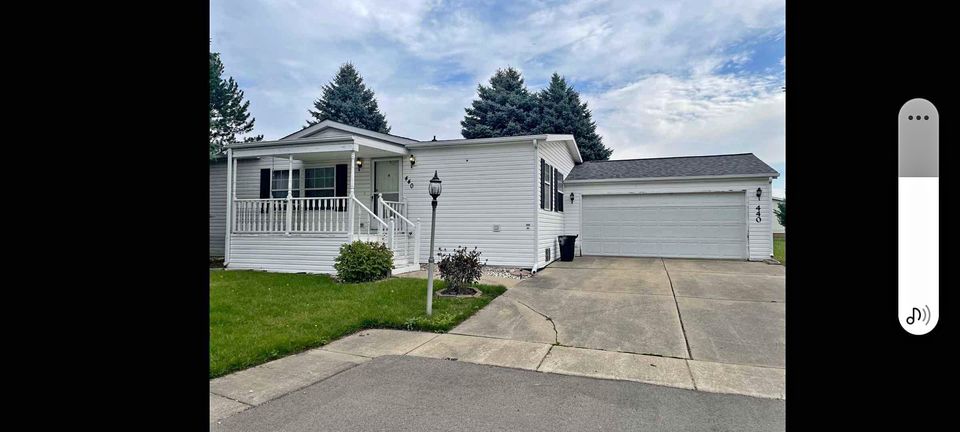Did you know that the current average 30-year fixed mortgage rate is at its lowest in decades, standing at around 3%? With this unprecedented opportunity, many are contemplating whether now is the right time to invest in homeownership. The housing market has seen a surge despite economic uncertainties, making it an intriguing prospect for potential buyers. However, various factors need consideration before taking the plunge into real estate amidst fluctuating market conditions. In this article Should I Buy a House Now? We will discuss all the pros and cons to taking the plunge and buying a house.

Evaluating the Current Housing Market Dynamics
Analyzing Home Prices and Inventory Levels
Currently, market conditions play a crucial role in determining whether it’s the right time to buy a house. By assessing the current home prices and inventory levels, you can gain valuable insights into the state of the housing market. For instance, if there’s a high demand for houses but limited inventory available, this could lead to increased competition among buyers and potentially drive up prices. On the other hand, if there’s an oversupply of homes in a particular location, it might create more favorable conditions for buyers.
When considering whether to make a house purchase now or later, it’s important to keep in mind that time plays a significant role in shaping market dynamics. For example, seasonal fluctuations can impact both supply and demand in the housing market. Understanding these patterns can help you make an informed decision about when to enter the market.
Impact of Location on Housing Market Dynamics
The influence of location on housing market dynamics cannot be overstated. Different areas may experience varying levels of buyer demand and competition due to factors such as job opportunities, amenities, schools, and overall quality of life. For instance, urban areas with thriving economies might see higher demand for housing compared to rural regions.
In evaluating whether now is the right time to buy a house or not, consider how different locations are faring in terms of demand for properties. This analysis will provide you with valuable insights into which areas are experiencing robust buyer interest and where competition might be less intense.
Understanding the Impact of Economic Challenges on Home Buying
Affordability and Economic Downturns
During economic downturns, home buyers may face challenges in affording a house. This is because job losses or reduced income can make it difficult to qualify for a mortgage or afford monthly payments. For example, during the 2008 financial crisis, many individuals were unable to purchase homes due to widespread unemployment and decreased purchasing power.
Supply and demand dynamics also play a crucial role in home affordability. When there’s an economic downturn, home sales may decline, leading to an oversupply of homes in the market. This surplus can drive prices down and create opportunities for buyers who have maintained their job stability.
Job Stability’s Role in Home Buying Decisions
Job stability is a significant factor that influences home buying decisions during economic challenges. Individuals with secure employment are more likely to qualify for mortgages and confidently invest in homeownership. Conversely, those facing uncertainty about their jobs might delay or reconsider purchasing a house until their employment situation stabilizes.
Furthermore, when considering whether to buy a house now, potential buyers should carefully evaluate how inflation and interest rates impact their purchasing power. High inflation rates coupled with rising interest rates can reduce the value of money over time while increasing borrowing costs for home purchases.
Looking to purchase a mobile home? Visit www.USMobileHomePros.com today for used singlewide and doublewide mobile homes.

Analyzing Mortgage Rates and Homebuyer Influence
Impact on Home Affordability
Fluctuating mortgage rates can significantly impact the affordability of purchasing a home. When mortgage rates are low, it means that buyers can secure loans with lower interest rates, resulting in more affordable mortgage payments. On the other hand, when mortgage rates increase by even just a few percentage points, it could mean paying substantially more over the life of the loan.
Low mortgage rates also allow buyers to qualify for larger loans because their monthly payments will be lower. This increased purchasing power may drive up home prices due to higher demand, which could potentially make buying a house less affordable for some individuals.
Influence on Homebuyer Behavior
The movement of mortgage rates plays a crucial role in influencing homebuyer behavior. For example, when mortgage rates are low or dropping, potential buyers might feel motivated to enter the housing market as they perceive it as an opportune time to lock in favorable financing terms. Conversely, rising mortgage rates may deter some potential buyers from making purchases due to concerns about increased costs and reduced affordability.
Homebuyers often consider several factors before making a purchase decision – one of these being prevailing mortgage rates. The ability to secure a favorable rate is typically seen as an advantage for prospective homeowners seeking long-term financial stability.
Anticipating Housing Market Conditions and Recovery Predictions
Expert Predictions
Industry experts predict that the current housing market conditions may favor potential homebuyers. Many believe that now is a good time to buy a house due to low mortgage rates, making homeownership more affordable. Some analysts foresee an increase in demand for suburban properties as remote work becomes more prevalent.
Some real estate professionals also anticipate a surge in home sales once the economy stabilizes and consumer confidence improves. These predictions are based on historical trends and current economic indicators, suggesting a positive outlook for prospective homebuyers.
Factors Contributing to Downturn
While there are optimistic forecasts, it’s crucial to consider factors that could contribute to a potential housing market downturn. Economic instability, job loss rates, and fluctuating mortgage interest rates can significantly impact the housing market. Unforeseen events such as natural disasters or global crises can also influence market conditions.
It’s essential for potential buyers to carefully evaluate these factors before making any decisions about purchasing a home. Understanding the risks associated with investing in real estate during uncertain times can help individuals make informed choices about whether they should buy a house now or wait for more stable conditions.

Strategies for Saving and Preparing for a Home Purchase
Effective Saving Strategies
Saving for a home purchase requires discipline and commitment. Consider setting up automatic transfers from your checking account to a dedicated savings account. This way, you are consistently putting money aside without the temptation to spend it. Cutting down on unnecessary expenses such as dining out or subscription services can free up more funds for your down payment.
Another effective strategy is to utilize windfalls like tax refunds or work bonuses toward your home fund. By doing so, you can accelerate your savings progress significantly.
Importance of Maintaining a Good Credit Score
Maintaining a good credit score is crucial when preparing to buy a house. Lenders use this score to determine the interest rate on your mortgage. To improve or maintain a good credit score, ensure that you pay bills on time and keep credit card balances low relative to their limits.
Furthermore, regularly monitoring your credit report allows you to identify any errors or fraudulent activity that could negatively impact your home purchase plans.
Consider Alternative Financing Options
First-time homebuyers have various alternative financing options available that can make purchasing a home more feasible. For instance, FHA loans require lower down payments and allow individuals with lower credit scores to qualify.
Some states offer programs that provide assistance with down payments and closing costs for first-time buyers who meet certain criteria.
Assessing the Risks: Market Crashes and Foreclosures
Impact of Market Crashes
Market crashes can significantly affect homeownership. During a market crash, property values may decline rapidly, leaving homeowners with properties worth less than what they owe on their mortgages. This situation, known as being “underwater,” can lead to financial strain and make it challenging to sell or refinance the home.
Foreclosures become more common when market crashes occur. As property values decline, some homeowners may struggle to keep up with mortgage payments and ultimately face foreclosure. This not only impacts individual homeowners but also contributes to an oversupply of homes in the market, further driving down property values.
Strategies for Mitigating Risks
To mitigate risks during market downturns, potential buyers should carefully assess their financial situation before purchasing a home. It’s crucial to have a stable job and emergency savings that can cover several months’ worth of expenses in case of unforeseen circumstances such as job loss or medical emergencies.
Prospective buyers should consider purchasing a home well within their means, avoiding stretching their budgets too thin. Opting for a smaller or more affordable home reduces the risk of financial strain if property values decline.
Exploring various loan options is also essential; fixed-rate mortgages provide stability during uncertain economic times compared to adjustable-rate mortgages that are subject to interest rate fluctuations.
Furthermore, staying informed about local real estate trends and working with experienced real estate professionals can provide valuable insights into the current market conditions and help buyers make well-informed decisions.

Identifying First-Time Buyer Opportunities Amidst Market Fluctuations
Favorable Conditions
Market fluctuations can create favorable conditions for first-time buyers. During a market downturn, home prices often decrease, making it more affordable for first-time buyers to enter the housing market. Interest rates may also be lower during these periods, resulting in reduced mortgage payments and overall cost savings.
First-time buyers should keep an eye on fluctuating markets as they might find themselves in a position to purchase a property that was previously out of reach due to high prices or interest rates. For example, if there is a sudden drop in home prices due to economic factors or other circumstances, it could present an excellent opportunity for first-time buyers to make their move.
Support Programs
There are various resources and programs available to support first-time buyers when considering purchasing a home amidst market fluctuations. These programs may include down payment assistance, low-interest loans specifically designed for first-time buyers, and educational workshops aimed at providing guidance through the home buying process.
For instance, some government-backed programs offer financial assistance or reduced interest rates for qualifying first-time homebuyers. These initiatives aim to alleviate the financial burden associated with purchasing a home and provide additional support during uncertain market conditions.
Expert Analysis on Mortgage Rate Expectations and MCAI
Anticipated Mortgage Rate Trends
Experts predict that now is a favorable time to buy a house due to the current low mortgage rates. With rates at historic lows, homebuyers have an opportunity to secure more affordable financing for their dream homes. Low mortgage rates translate to lower monthly payments, making homeownership more accessible.
Experts anticipate that these low rates may not last long. Therefore, potential homebuyers are encouraged to act promptly before the market experiences an upward trend in mortgage rates. This urgency stems from the likelihood of higher interest rates in the near future, which could increase overall housing costs for buyers.
Impact of Mortgage Rate Expectations on the Housing Market
The anticipation of rising mortgage rates can spur increased demand in the housing market as buyers rush to lock in lower interest rates. However, this surge in demand might also lead to heightened competition among buyers and potentially drive up property prices.
Moreover, fluctuating mortgage rate expectations can influence buyer behavior and timing decisions. Homebuyers should carefully consider these insights from experts regarding anticipated trends while weighing their options for purchasing a house.

Navigating Real Estate Investment Before a Potential Recession
Economic Uncertainty
Real estate experts suggest that inflation and economic instability can create both challenges and opportunities for potential real estate investors. During a period of uncertainty, it’s crucial to carefully assess the market conditions before making any decisions. Existing homeowners might face difficulties, but for informed buyers, this could be an ideal time to consider purchasing property.
Amidst economic turmoil, some properties may experience a decrease in value due to the overall market condition. However, this presents an opportunity for savvy investors who are prepared to seize the moment and make strategic purchases at lower prices.
Risk Management Techniques
Understanding how to navigate real estate investment during a potential recession involves implementing effective risk management techniques. It’s essential for prospective buyers to conduct thorough research on various locations and property types. Diversifying one’s portfolio by investing in different types of properties can help mitigate risks associated with any particular sector or location.
Moreover, investors should focus on areas where demand is expected to remain stable or even increase despite economic challenges. For instance, rental properties in well-established neighborhoods often continue to attract tenants regardless of broader economic trends.
Summary
You’ve delved into the complexities of today’s housing market, considering economic challenges, mortgage rates, and real estate investment strategies. As you navigate through these turbulent waters, remember that knowledge is your life jacket. By staying informed and proactive, you can ride the waves of market fluctuations and identify opportunities amidst the chaos. Whether you’re a first-time buyer or a seasoned investor, arming yourself with insights from experts and understanding the dynamics at play will be your compass in this unpredictable terrain.
Now armed with a deeper understanding of the housing market’s nuances, it’s time to take action. Start implementing those saving strategies, researching potential investment avenues, and keeping a keen eye on mortgage rate trends. Your journey to homeownership or real estate investment may have its share of obstacles, but with perseverance and strategic planning, you’ll be better equipped to navigate these uncharted waters.
Frequently Asked Questions
Should I buy a house in the current housing market?
Absolutely! With low mortgage rates and potential buyer opportunities, now may be an ideal time to invest in a home. However, ensure your financial readiness and consider long-term stability before making this significant decision.
How can economic challenges impact my decision to buy a home?
Economic challenges like job instability or recession fears can affect your ability to afford homeownership. It’s crucial to evaluate your financial security and have a contingency plan for unexpected changes that could impact your ability to maintain homeownership.
What are the risks associated with buying a house amidst market fluctuations?
Market crashes and foreclosures pose inherent risks when buying during fluctuating market conditions. It’s essential to conduct thorough research, secure stable financing, and seek expert advice before committing to such an investment.
Are there specific strategies for saving and preparing for a home purchase?
Definitely! Saving diligently, improving credit scores, reducing debts, and exploring first-time buyer programs are effective strategies. Seeking pre-approval for mortgages can provide clarity on affordability while ensuring readiness for purchasing a home.
How do I navigate real estate investment before a potential recession?
Navigating real estate investments prior to an anticipated recession involves careful consideration of property types and locations. Diversifying investments across different asset classes can also mitigate risks associated with economic downturns.
Check out these articles as well:
How to Sell a Mobile Home By Owner
Mobile Home Blue Book: Understanding Value & Maximizing Returns
Sell a Home Without a Realtor: Ultimate Guide to DIY Selling
